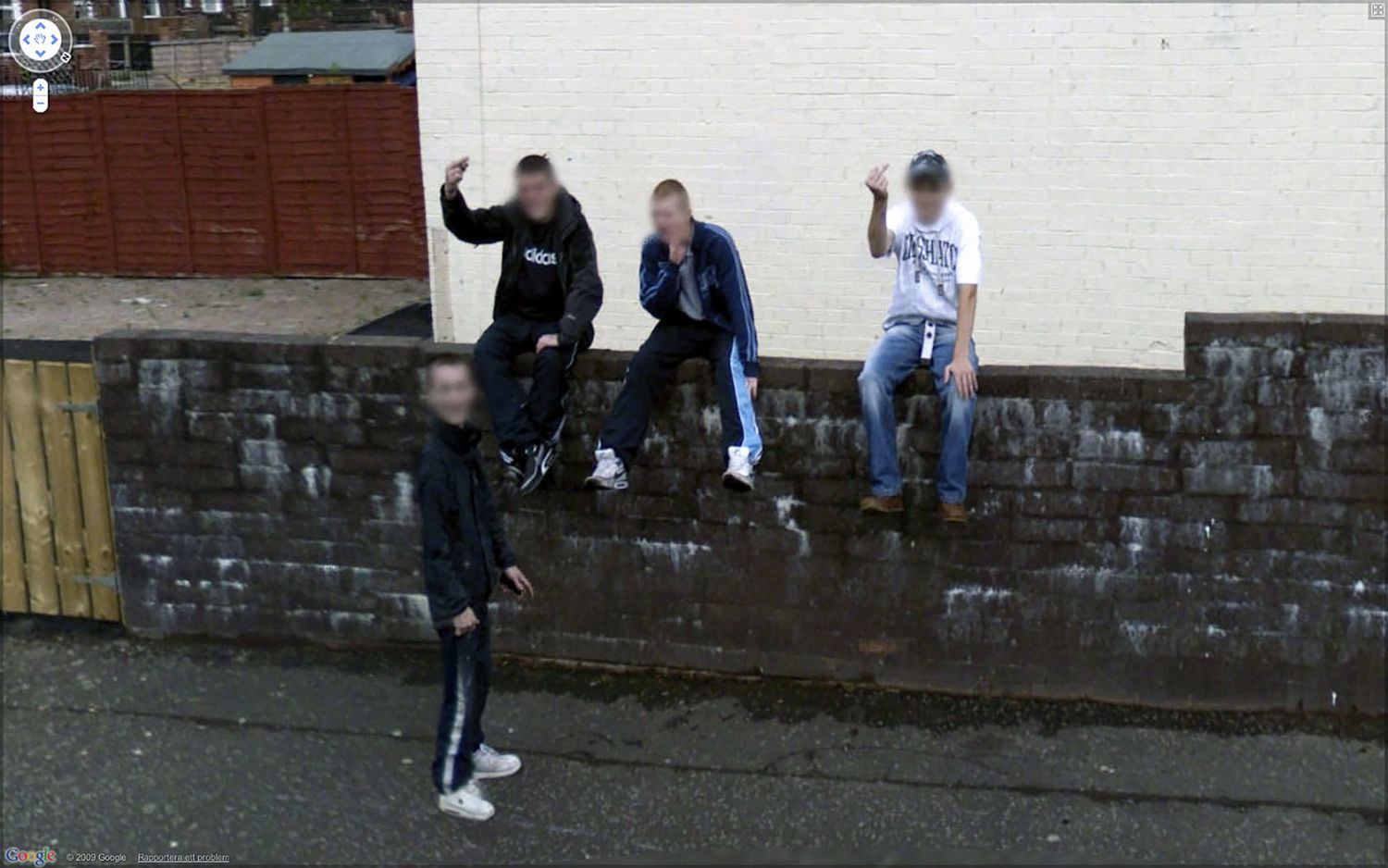In Plain Sight | Wellcome Collection
I love the Wellcome Collection! Not only does it host the best museum shop in London hands down, its exhibitions are so entertaining - imaginative grab bags of interesting things, based loosely around a single theme. I also feel a bit defensive of it as an institution, given the silly “anti-woke” media fracas it faced recently when it announced plans to update its permanent collection display.
Anyway, following recent shows on themes like electricity, games and (my favourite) teeth, it’s the turn of sight. In Plain Sight, in terms of both the corporeal - the eye - and the conceptual - visual perception. There’s one work in the exhibition that I found particularly thought-provoking.

This was a presentation of Jon Rafman’s Nine Eyes of Google Street View project (pictured above). These images, presented in slideshow format, are taken directly from Google Street View - the title refers to the nine cameras that are placed on top of the vans that capture the images for the tech giant’s phenomenally useful, ambitious global service.
Rafman got in early, beginning the project in 2009, two years after Street View’s original release. It’s still ongoing. In an essay on the project for AFC, the artist explained that he was initially attracted by the “noisy amateur aesthetic” of Street View images: the vans simply capture what’s on the street as they drive past, the only modification being to blur out people’s faces.
He’s right, it is a specific aesthetic. The photos are instantly recognisable to any Street View user (so that’s to say, pretty much everyone). There’s something in the slightly warped depth and perspective from the nine cameras’ panoramic view - they’re placed on a sphere on top of the van. Rafman also leaves in the compass icon and the Google watermark on the images, enhancing the viewer’s sense of familiarity.
But viewed in a deracinated slideshow, rapid fire, one after the other, the views come to seem deeply strange. The only prevailing theme really is the reactions of the people in the photos, noticing that they’re being looked at by the van.
These people aren’t generally pleased to see us, like the Belfast youths with their middle fingers up in the image I’ve chosen to illustrate this post. Elsewhere, another young man moons the panoramic camera, his thin haunches turned derisively to us. Another bunch of youths give us an enthusiastic Nazi salute.
The project doesn’t focus on Google’s massive technical achievement, then. Instead, Rafman’s telling us something about surveillance and consent. The indifferent panoramic camera ‘sees’, its subjects see what’s going on right back, and react with bravado - or something that looks like hate.
Rafman’s on their side though - in his view, they’re showing humanity in the face of an all-powerful corporate foe. “The artist/curator, in reasserting the significance of the human gaze within Street View, recognizes the pain and disempowerment in being declared insignificant,” he says. “The artist/curator challenges Google’s imperial claims and questions the company’s right to be the only one framing our cognitions and perceptions.”
Others - like me, I admit - will feel impressed and challenged by the Rafman-curated images, might have second thoughts about a publicly-listed tech company monetising a grand project of global surveillance - then go right back to using Street View. Good for the Wellcome Collection anyway, for featuring the project in yet another fascinating show.
In Plain Sight is at the Wellcome Collection (London). 20 October 2022 - 12 February 2023